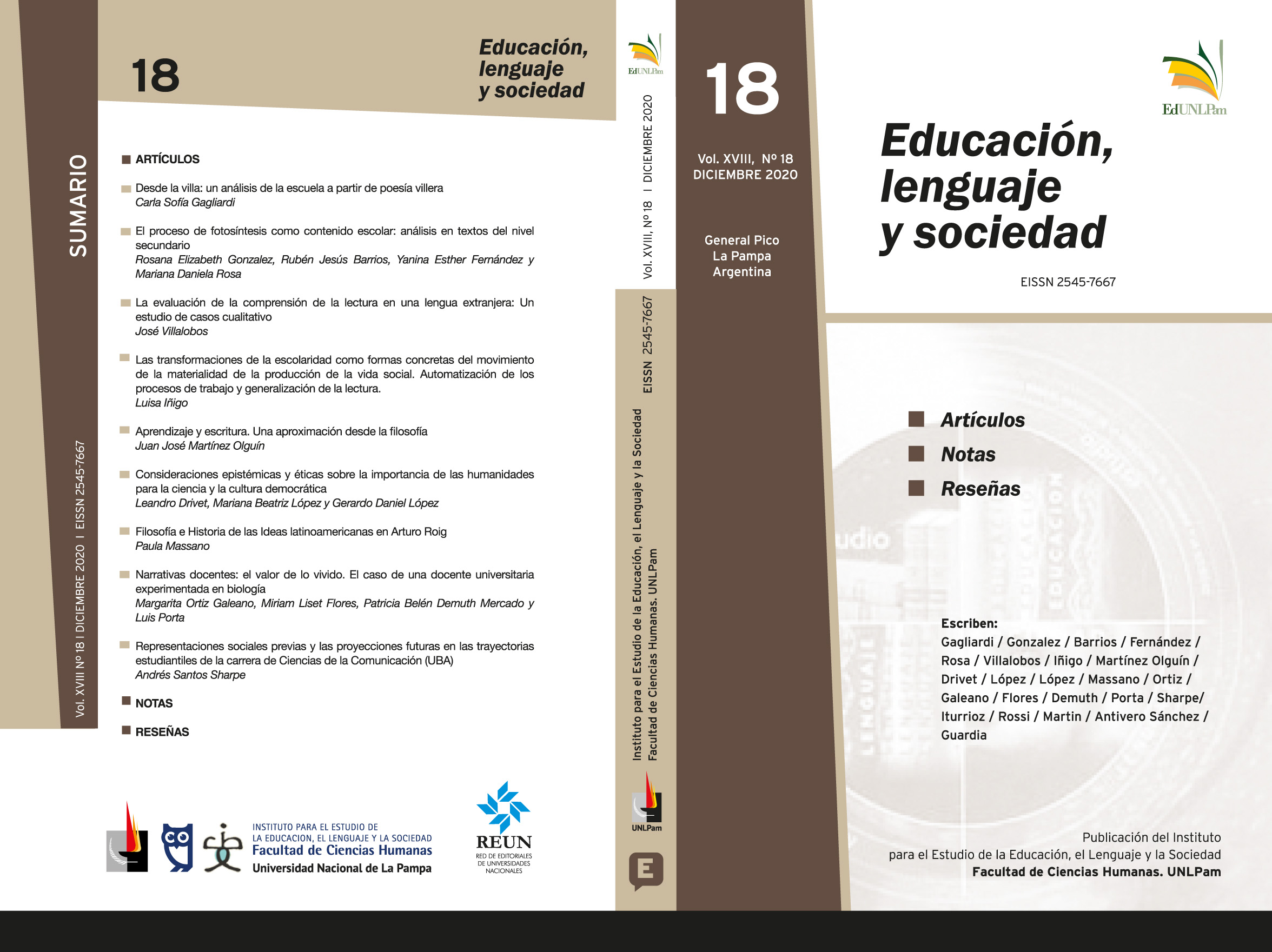Schooling transformation as concrete forms of the movement of the materiality of the production of social life. Automation of work processes and generalization of reading
Keywords:
transformation, schooling, secondary teaching, curriculum, social life, workAbstract
The article puts forward a set of arguments as grounds to approach two global tendencies that have been described by the ‘world society’ theory: the expansion of secondary education starting the second half of the 20th century, and the standardization of its curriculum with a preeminence of reading comprehension and, more generally, the ability to operate with written language. Engaged in a materialist approach, the author argues these tendencies should be considered in the light of the role of schooling in the unity of social life. In particular, the proposal is to focus on the process transformations of work in the last three quarters of a century, by means of cross-national research comparison. Far from aiming at renovating some kind of functional approach, it is the overcoming of a representation of production and education as mutually exterior ‘instances’ that is sought. Accordingly, the article argues that transformations in education are necessary concrete forms of a content: the production of social life in its continuous movement.






21.png)







